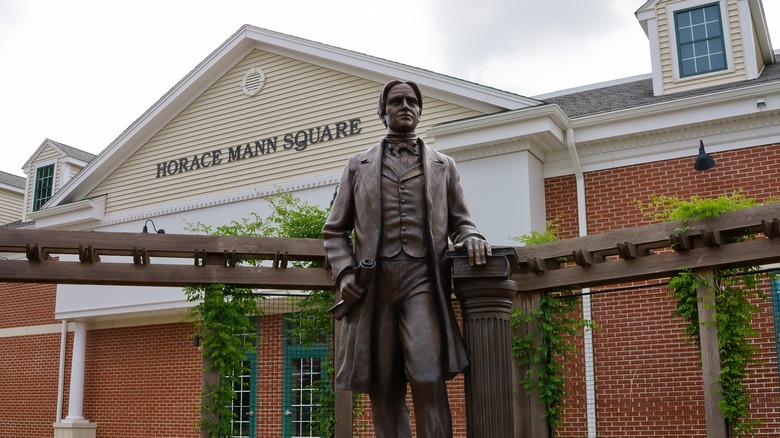The Story Behind The Myth That An Italian Teacher Roberto Nevilis Invented Homework
It's a necessary evil (or perhaps it's completely unnecessary — more on that in a moment) that has been bedeviling children and parents for generations: homework. Just check out any random parenting advice column and you'll see how much of a chore homework is for the parents and for the children. And even so, at least one parenting advice columnist is advising parents of younger children to not even volunteer to help unless specifically asked to do so.
But is homework one of those aspects of education, like sitting at a desk, that just developed organically over centuries of education? Or did one teacher or administrator come up with the idea? For about a century, a legend has stated that an Italian man named Roberto Nevilis came up with homework, and those in the know have been cursing his name for just as long. He even gets his own entry in Urban Dictionary. However, Nevilis is almost certainly a myth (or at the very least, the idea that he invented homework is a myth), and it looks like there's no one person to blame for the phenomenon.
Blame Horace Mann, Not Roberto Nevilis
As both Through Education and The Ed Advocate report, somehow a myth entered the world's collective consciousness that an Italian man named Roberto Nevilis invented homework. Some versions of the myth even add some context: It was intended to punish underperforming students and to reward those who excelled at their lessons. Some versions of the myth say that his invention dates to 1905, others that it dates to 1095 – an 800 year difference! There's supposedly a photograph of him on Twitter, with a caption claiming the year was 1095, which is a solid eight centuries before the invention of photography.
Needless to say, the Nevilis origin story is probably bunk. Putting aside the fact that he could have lived in either of two periods in history 800 years apart (and the 1095 origin story ignores some important facts about public education, including that it didn't exist at the time), the real indicator that his story is fictitious is that it exists only in question-and-answer forums and parenting blogs. On the rare occasions that someone attempts to cite it, it's always with vague words like "various sources" or "some say" or the like.
The real culprit is probably Horace Mann (his statue is above), and even he didn't come up with it. The American education advocate was inspired by a European system, according to Through Education, and it became more or less ubiquitous worldwide in the decades after he introduced it to the U.S.
Is Homework Necessary?
As mentioned previously, homework can be as bothersome for parents and families as it is for the children tasked with doing it, and for evidence, look no further than this 1999 Time article, "The Homework Ate My Family." But is homework, like doing taxes, just one of those necessary evils that we all have to live with?
As it turns out, the jury is still out on the benefits of homework. For example, in 2019, Forbes highlighted several school districts across the country that have ditched homework, "citing research showing it doesn't do much to boost achievement," as the website notes. However, for a more thorough explanation of both sides of the issue we need look no further than ProCon which, as the website's name makes manifest, lays out the pros and cons of the matter. And in this case, there are points to be made on both sides. Some pros listed are that studies have shown homework increases student achievement and involves parents in the educational process, while studies have also shown that homework doesn't help younger students (while it may help older ones) and that it exacerbates the achievement gap.


